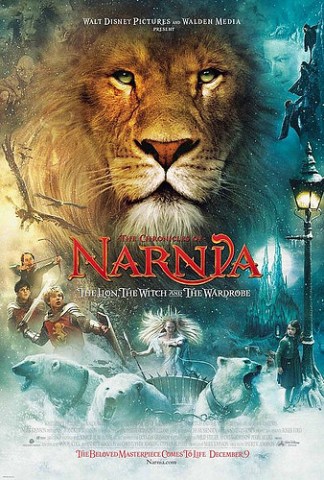Posts Tagged ‘Treaty of Nanking’
The Groves of Academe…
It’s that time of year- graduation season. So, from our friends at Good, a look back at what college graduates will remember, and a peek forward to what those escaping high school can expect: “The Top 10 Oddest College Courses that $50,000 Can Buy.”
 Beyond Narnia: The Political Theory and Writings of C.S. Lewis
Beyond Narnia: The Political Theory and Writings of C.S. Lewis
Offered by Brown University (Providence, Rhode Island)
Annual cost of tuition and fees: $52,030
Photo (cc) by Flickr user menj
More provocative pedagogy at “The Top 10 Oddest College Courses that $50,000 Can Buy.”
As we sharpen our pencils, we might recall that it was on this date in 1839 that Chinese authorities led by Lin Zexu destroyed 1.2 million kg of opium confiscated from British merchants in Canton. Sino-British trade had been brisk since 1756. Initially the trade was an exchange of British silver for Chinese luxury goods; but this generated a trade imbalance that the British addressed by beginning, in the 1780’s to substitute opium (harvested in India) for silver. While opium had some documented medical uses, the primarily application was “recreational”– and it proved very popular indeed. Imports of the narcotic exploded. In the 1830’s the British East India Company’s monopoly on Chinese trade was ended, and Americans began to import cheaper Turkish opium to compete with the British. Use in China grew even more widespread… and the problem that it created became undeniable. In 1839, the Daoguang Emperor appointed Lin Zexu governor of Canton, charging him with ending the opium trade… and so it was that the First Opium War was begun.
The Chinese underestimated Britain’s commitment to its merchants– and its newly-strengthened military and naval power. The War ended In 1842 with the Treaty of Nanking, the first of what the Chinese called “the unequal treaties,” which granted an indemnity to Britain, opened five “treaty [free, for the British] ports,” and the ceded of Hong Kong Island to the Crown. But even these concessions failed to satisfy the British appetite for trade; the Second Opium War began in 1856.
 HMS Nemesis destroying Chinese junks during the First Opium War (source)
HMS Nemesis destroying Chinese junks during the First Opium War (source)
You must be logged in to post a comment.